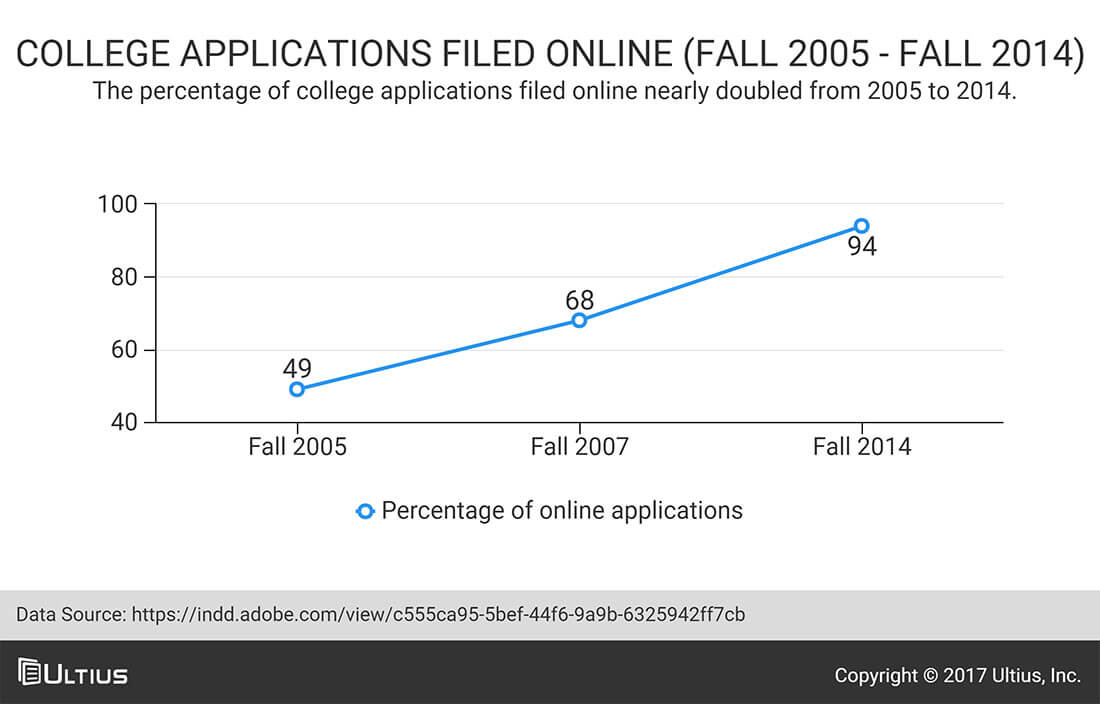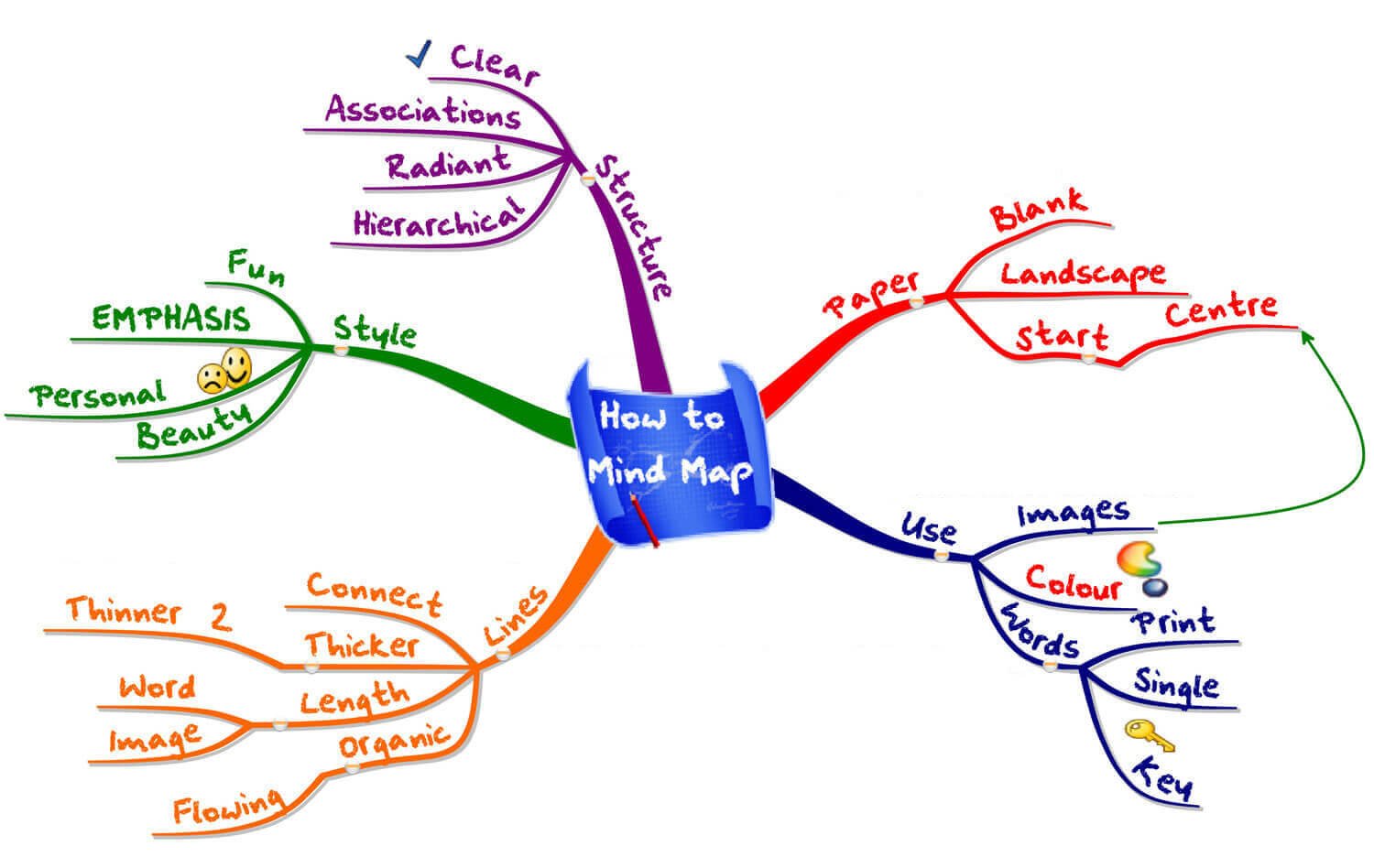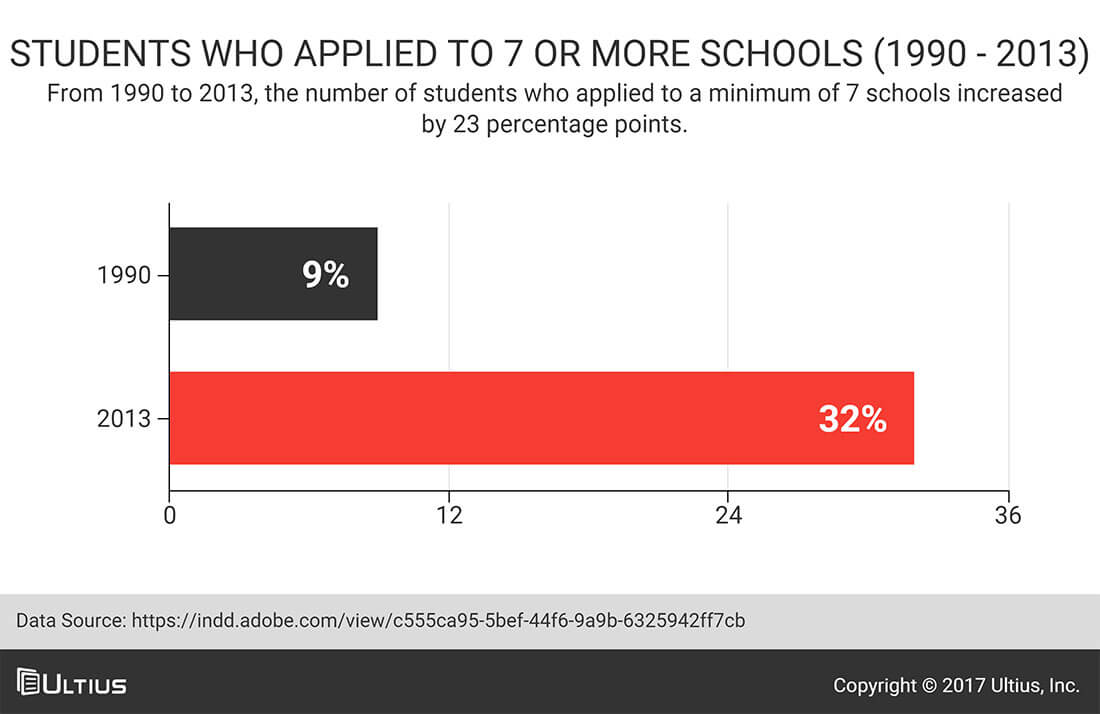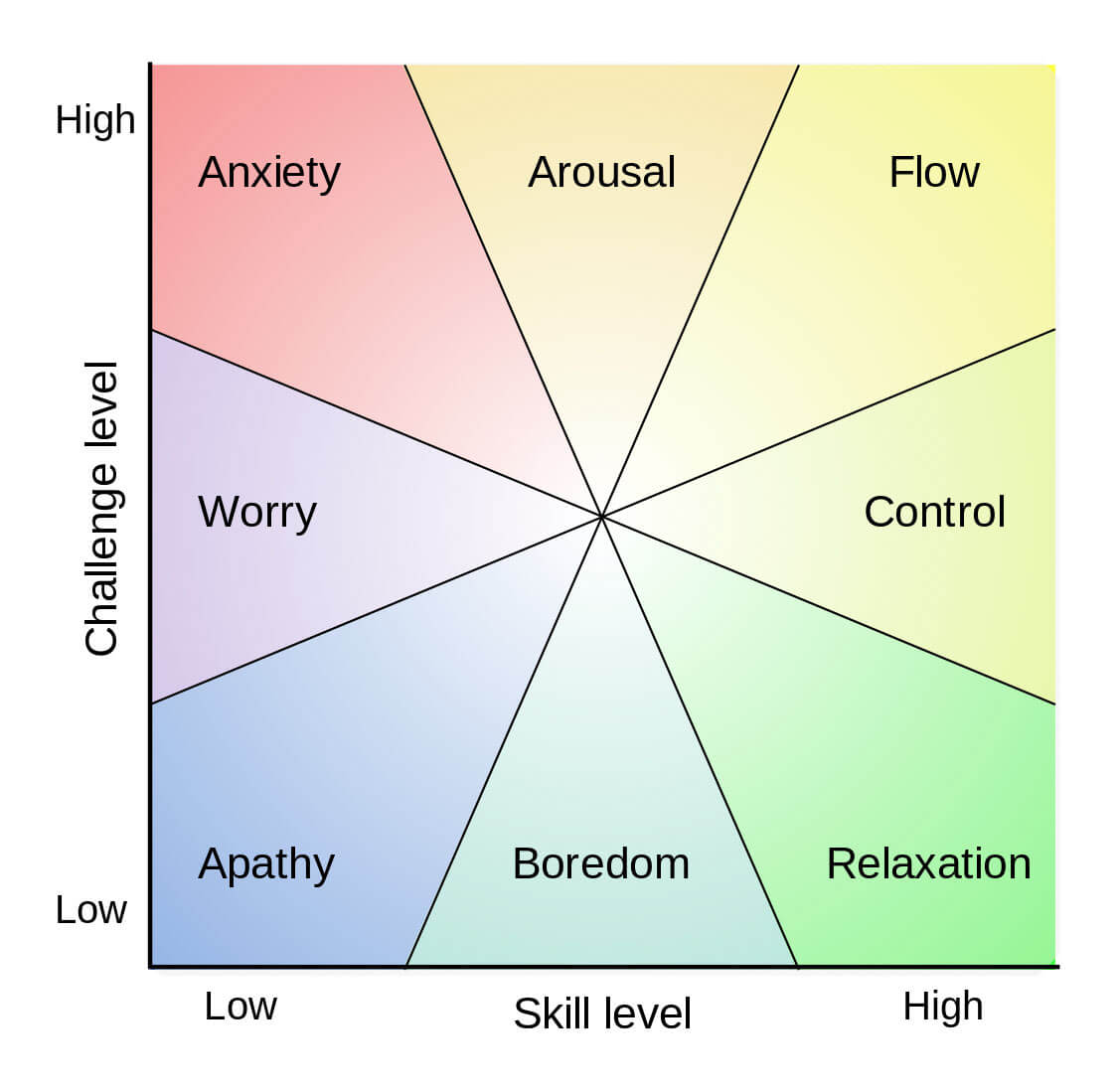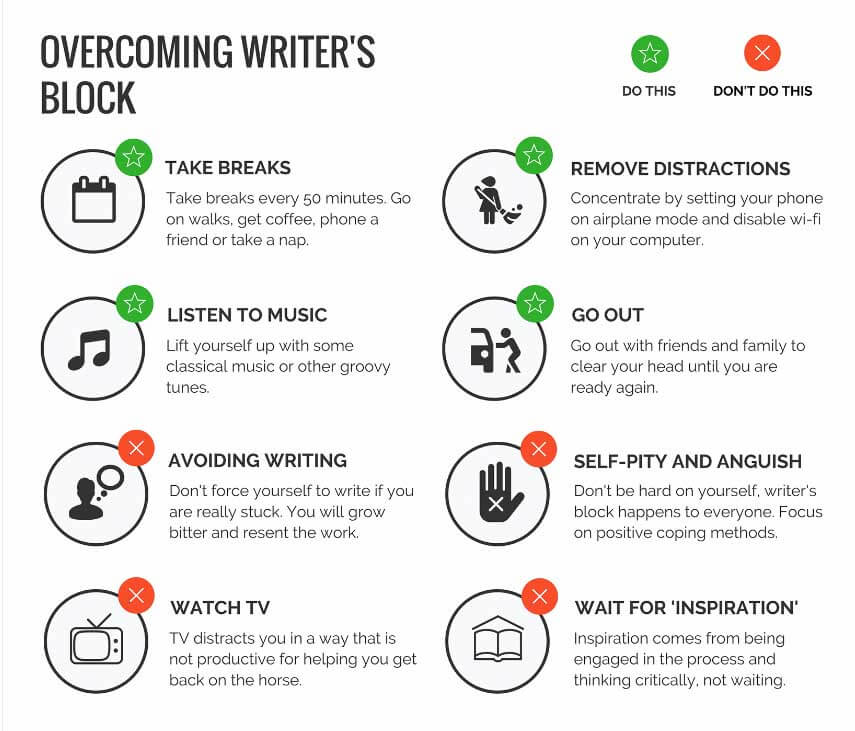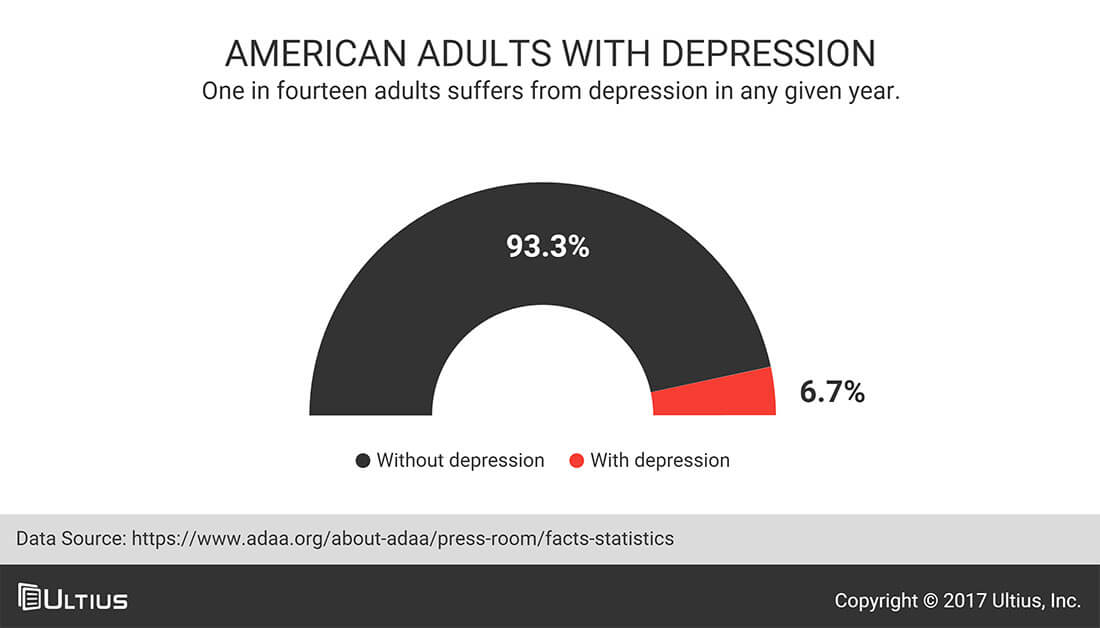Ultius Blog
How to Write a Good College Admissions Essay
When you are applying to get into college, the admissions essay will be one of the most important parts of your application process. The admissions essay is an essay in which you have the opportunity to showcase who you are, and why the college should specifically accept you, as opposed to all the other applicants who are trying to get in as well. This article will cover the following points about the college admissions essay:
- Purpose of college admissions essays
- Process of writing an essay
- Examples
- Tactics for stimulation
- Originality
- Structure
- Importance of research
- Obtaining feedback
- Other valuable information
By the end of this article, you should have a good idea of what makes up a good college admissions essay, and what you can do in order to make sure that you make the best possible impression on the people who may hold the keys to your educational future.
The purpose of college admissions essays
The main point of the college admissions essay is for you to give the admissions officers a good idea of who you are, and why they should choose you to be a part of their educational community. The college applicant's transcripts and test scores are full of numbers, and those are important, as far as they go. With the admissions essay, the officers finally have the opportunity to hear your personal, individual voice.
David Jiang, a former director of admissions at the prestigious Dartmouth College, has said the following about this matter:
"As an admissions officer reading hundreds of applications and essays in a short period of time, it takes something unique or memorable for an application to stand out at the end of the day."
So, the admissions essay gives the college applicant a chance to make his/her voice heard to the admissions officer. But at the same time, it is important to write a truly great essay that is able to stand out from the crowd and make a real impression on the officer.
A decline of standardized tests
In general, there are four main things that the college admissions officer can evaluate when deciding whether to accept a given applicant. These are:
- High school transcripts
- Standardized test scores
- Extracurricular activities
- The admissions essay
The admissions essay is especially important in this day and age due to the fact that standardized test scores, such as the SAT and the ACT are becoming less important in the college admissions process than they once were.
According to data compiled by the organization FairTest, there are currently (as of Fall 2016) over 900 colleges/universities that are test-optional (according to the new SAT changes in March of 2016), or which do not require or consider SAT/ACT scores when making admissions decisions. This includes about 46 percent of liberal arts colleges that can be classified as top tier.
This means two things. One: as top colleges stop paying as much attention to standardized test scores, the admissions essay becomes even more important than ever before. And two: if the applicant doesn't feel confident about his/her test scores, then the admissions essay provides a great opportunity to turn things around by making a strong impression on the admissions officer.
An increase in college application numbers
In recent years, more students have been applying to colleges/universities than ever before. But this does not mean that more students are actually getting admitted. Rather, the numbers of applications are actually going up because of the general shift to submitting online applications. This makes it easy for students to submit very similar applications to a wide range of colleges. And while this may mean more possibility for the students, it also means a lot more paperwork that the admissions officers have to sort through when making their decisions.
According to a report developed by Melissa Clinedinst et al. for the National Association for College Admission Counseling, the percentage of college applications that are filed online has increased dramatically over the course of the past decade.
More applications filed online means more total applications that the admissions officers have to examine; and while this sometimes means that more students get into college, it more often means that the general admissions rate itself goes down. This situation makes it all the more important for the college applicant to write a stellar admissions essay that can allow him/her to stand out from the ever-growing crowd and really capture the interest and attention of the officer. This article is here to help you with that.
The process of writing a good college admissions essay
The first step to writing a good college admissions essay consists of actually understanding what the essay is for, and what you need to get across to the admissions officer. In a word, what you are trying to express is your personality. You want to give the officer a good idea of who you are (not just in terms of academic performance, but as a human being) and why you would be a good fit for the college/university.
The organization CollegeBoard, which provides several services to help students toward a brighter academic future, has outlined the following eight steps for going through the process of writing an admissions essay.
| 1 | Brainstorm |
| 2 | Get the first draft down on paper |
| 3 | Develop introduction, body, and conclusion |
| 4 | Be specific |
| 5 | Find a creative angle |
| 6 | Be honest with yourself |
| 7 | Get feedback |
| 8 | Proofread and make corrections |
It is worth discussing these steps in greater depth. All of them will be covered by the end of this article. Ultius has also published a previous blog with helpful writing tips for students you may also want to explore.
The brainstorming process
Brainstorming refers to the simple process of just getting all of the ideas you have out of your head and down onto the page. Jaclyn M. Wells has suggested the following about this in an article for Purdue Online Writing Lab:
"After you have a good grasp of what the prompt is asking, you should figure out how you will respond. . . . You won't necessarily use all of the ideas you come up with, but it's helpful to have lots of ideas to choose from when planning your essay. After you have gathered many ideas, you'll work on figuring out your main idea."
The purpose of the brainstorming process is to get all the possible ideas and directions for the admissions essay out into the open, so that you will then be able to consider them in a more effective way and make decisions about how you would like to proceed.
Some people like using tools, such as mind maps, in order to help facilitate the brainstorming process. A mind map is essentially a visual method for organizing ideas into groups on the basis of their relationships with each other.
Of course, you don't have to use this specific method, if it doesn't suit your way of thinking. The point is that as you go through the brainstorming process, you may begin to see how your ideas relate to each other, and how they can be effectively pursued in essay form. When you pull this together, write it all down, and plan ahead you will be well on your way to your first draft. Not planning ahead is one of the most common mistakes made by new writers.
Choosing your topic
After you have finished with your brainstorming session, you can decide which of your ideas are the strongest and represent the best of who you are. The prompts for the essay generally tend to guide you toward thinking about key experiences that put your passion, intelligence, and/or curiosity on display. For example, the “Common Application” is the standardized application used by several hundred colleges/universities for the admissions process, and these are the seven prompts included on the 2017-2018 version of the application.
- Some students have a background, identity, interest, or talent that is so meaningful they believe their application would be incomplete without it. If this sounds like you, then please share your story. [No change from last year.]
- The lessons we take from obstacles we encounter can be fundamental to later success. Recount a time when you faced a challenge, setback, or failure. How did it affect you, and what did you learn from the experience? [Revised.]
- Reflect on a time when you questioned or challenged a belief or idea. What prompted your thinking? What was the outcome? [Revised.]
- Describe a problem you've solved or a problem you'd like to solve. It can be an intellectual challenge, a research query, an ethical dilemma - anything that is of personal importance, no matter the scale. Explain its significance to you and what steps you took or could be taken to identify a solution. [No change from last year.]
- Discuss an accomplishment, event, or realization that sparked a period of personal growth and a new understanding of yourself or others. [Revised.]
- Describe a topic, idea, or concept you find so engaging that it makes you lose all track of time. Why does it captivate you? What or who do you turn to when you want to learn more? [New.]
- Share an essay on any topic of your choice. It can be one you've already written, one that responds to a different prompt, or one of your own design. [New.]
Previous versions of the common application included a question about a major accomplishment that you think marked your coming of age to adulthood; and another asked about a time when you experienced failure but grew stronger as a result. These are typical of the kinds of questions that are put forth by prompts for the college admissions essay, and the idea is often to pick a topic that most clearly exhibits your perseverance and motivation. Remember, when you’re conveying this personal type of essay not to lose focus on the quality of your academic writing.
The Common Application
Almost all college applications are submitted online these days, which means that when you are done with your essay, you will probably submit it electronically along with the rest of your application. And if you are using the Common Application, then you will have the opportunity to submit your essay to several schools at once.
Indeed, the Common Application is part of why college application rates have risen significantly, and a big reason why it is all the more important for you to stand out from the crowd with an exemplary admissions essay. According to National Admission for College Admission Counseling, back in the year 1990, there were 9 percent of students who applied to seven or more schools; but by 2013, that number was at 32 percent.
Many students may thus submit applications to colleges they aren't even very serious about attending. But this still increases the workload of the admissions officers, and increases the size of the pool with which you will be competing for acceptance.
The importance of originality in college admissions essays
Given the importance of standing out from the crowd, one of the most significant elements of your college admissions essay is original custom writing. The fact of the matter is that most college applicants will likely not feel confident in their own writings skills and thus take a cookie-cutter approach to writing their admissions essays. So, if you do something different, then you will almost automatically stand out from the crowd.
In a paper on this subject available through Academia.edu, Timothy Ryan has defined originality in a couple of different ways:
"Originality is defined as the quality of newness that exists in something not done before or not derived from something else. . . . Originality is a novel approach or idea that departs from traditional or previously established forms."
Of course, there are certain basics that you will have to meet in order to stay within the boundaries of your essay prompt. But the way in which you do this is where originality has the chance to enter the picture.
An original example
Abby Jackson of Business Insider has provided the full text of an admissions essay that got the writer into five Ivy League schools, plus Stanford. This is how that essay begins:
"Managing to break free from my mother's grasp, I charged. With arms flailing and chubby legs fluttering beneath me, I was the ferocious two-year old rampaging through Costco on a Saturday morning."
This is an example of originality because it immediately hooks the reader by dropping him/her right into the middle of an action-packed story. This is much different from an essay that begins in a more traditional way, such as, "I'm going to tell you about the time I . . . ".
Ways to cultivate originality
One of the tricky things about originality is that if you try too hard to be original, you will probably just end up not being original at all, just producing a kind of cliche instead. To access your own deeper creativity, it is important to sink into a kind of what psychologists have called flow state. This is a state of mind in which you are relaxed, confident, and trustful, and in which the words seem to "flow" out of you, with the essay almost writing itself.
It may be a lot easier to access this source of originality if you have a lot of previous experience with writing, or if you seek out the help of an expert, or a professional who has that kind of skill. This is because as the map above shows, the state of flow is usually accessed when a person with a high level of skill is confronted with a high level of challenge.
Essay structure
The standard way of writing an essay that everyone learns in school generally involves the five-paragraph structure. In this structure, a good essay begins with an introductory paragraph, proceeds to develop three main body paragraphs (each of which focus on a separate main point), and then closes with a concluding paragraph that ties the essay together and reiterates the main idea of the essay as a whole. It’s important to remember-while you want your essay to be original, it’s important to use appropriate language and sentence structure in any type of academic writing.
This is a good place to start when thinking about how to structure your college admissions essay, but the best essays tend to evolve past this level.
This has to do with what has already been discussed about originality above. The problem is, everyone knows about the five-paragraph structure; so, if you stick to that in a strict way, then the admissions officer will know that you just opted for the cookie-cutter option, as opposed to trying to develop something personal and original.
Notes on an original structure
In general, an original structure for your admissions essay would be one that fits the arc of your story in a custom-tailored way, as opposed to a pre-existing box into which you're trying to make your story fit. The introduction and conclusion are essential for any well-structured essay. However, there is often room to play around with the organization of the body, in order to have not just three main points but rather a more organic development and unfolding of the story as you tell it.
This is similar to how a poem can be written within a specific structure, or it can be written in a free verse form, where the structure is at least partly determined by the content itself.
| Sonnet | Free verse |
| "Ye ladies..." | Dante Alighieri | "The Red Wheelbarrow" | William Carlos Williams |
| Ye ladies, walking past me piteous-eyed, Who is the lady that lies prostrate here? Can this be even she my heart holds dear? Nay, if it be so, speak, and nothing hide. |
so much depends upon / a red wheel barrow / glazed with rain water / beside the white chickens |
Williams' poem here clearly has a structure of its own. But it is a structure that he made up himself in order to bring out the meaning of the poem; it wasn't a structure that was traditional and handed down across the ages, as was the case with Dante's poem.
Other aspects of good admissions essays
It may be useful to go over the recipe for a great essay. Some ingredients include good topic, a strong structure, while avoiding some critical fails some writers fall into.
| Excerpt | What makes it good |
| Originality1 | |
| "Managing to break free from my mother's grasp, I charged. With arms flailing and chubby legs fluttering beneath me, I was the ferocious two-year old rampaging through Costco on a Saturday morning." | This is a great introduction because it places the reader right in the middle of the action. It shows the admissions officer that the writer knows exactly what she is doing. |
| Good structure2 | |
| "As Lauren matures into more of a peer, I value her feminine point of view. Despite our age and gender differences, my parents enabled a lifelong bond between us, and I foster that bond as we grow." | This essay is organized into six paragraphs, and the structure captures the narrative flow of the writer's story. He has not imposed an artificial structure onto the story out of a sense of necessity. |
| Intriguing topic2 | |
| "'If I cooked you, I'd be able to survive on your meat for over a month.'" This was not the welcome I had expected on my first day at the British School in Phuket, Thailand." | This essay tells the story of how the writer persevered in the midst of a strange, new, and sometimes frightening situation. |
| Intriguing topic, unique style3 | |
| "They say the best books tell you what you already know, resonating with your own thoughts and emotions. As I read The Things They Carried on the train to Shanghai, it is as if the tempest of my thoughts has become unraveled and spelled out on paper." | The topic indicates that the writer is a self-reflective learner who processes information in a unique way. Moreover, the present tense style of the writing, when done effectively, is good for drawing in the reader. |
| Intriguing topic3 | |
| "There is something about the warmth of a kitchen filled with the butter smell of pastry that evokes a feeling of utter relaxation. I find joy in sharing this warm and homey experience by showering the people around me with the sweets." | The selected topic provides the admissions officer with insight into an aspect of the writer's personality and character that could not have possibly been reflected in the numbers reported by transcripts and test scores. |
On the basis of these examples, four main points can be made about the aspects of a great college admissions essay.
- The topic reveals something important about the character of the writer, whether in terms of character traits such as perseverance or in terms of passions (especially non-academic passions), such as baking.
- The topic is original: it tends to find meaning in places where people would not ordinarily expect to find meaning.
- The structure enhances, and does not get in the way of, the narrative flow of the story that is being told.
- The style enhances the originality of the essay as a whole and does what it can to draw the reader in and make him/her care about the story.
Stay stimulated
If you're not used to making yourself write on a regular basis, then it is more than likely that you may experience writer's block when you sit down and try to write your college admissions essay. Writer's block can strike even the most professional or experienced of writers, and there are some things that any writer can do in order to overcome this problem.
For example, when it comes to originality, Jennifer Haupt of Psychology Today has actually suggested the following:
"Counterintuitive as it seems, it's possible that the less focused you are, the more you are able to explore inventive possibilities. So, it may pay to procrastinate when it comes to creative process."
Of course, this is only true if you still leave enough time to ultimately get your essay completed. So you may want to take this into account when you plan to write your essay, and get started in on it far ahead of time, so that you will leave yourself time for relaxation and be able to make your essay as creative and original as possible.
Tactics for stimulating creativity
There are several small "games" you could play in order to help stimulate your creativity and desire to write. For example, Courtney Carpenter of Writer’s Digest has suggested taking several books, reading the first lines of each of those books, then copying down those first lines, and then using your imagination in order to continue from those first lines on your own. This could possibly help "jumpstart" your mind onto a creative track.
Another key tactic is to simply take the pressure off yourself. As Alice Weaver Flaherty has suggested in her book Midnight Disease, a great deal of writer's block is the result of the writer simply pushing himself/herself too hard, or feeling too much pressure to get the writing done and have it be perfect. That kind of pressure is contrary to the flow state that was described above, and which is the best state of mind for actual creative work.
This is why some of the best ways to get over writing block involve engaging in activities that just take your mind off writing. You could go for a walk in the park, or enjoy a beer or few (if you are of legal age, of course), or go catch a music show with your friends. You will probably find that when you return to your writing, your mind will feel refreshed, and you will be able to achieve a level of quality that was not possible when you were pushing yourself too hard.
The importance of research
A college admissions essay does not always involve research, since usually, the point is to tell your own personal story. And of course, you would be the expert on your own life and memories. However, if you do include objective facts from the outside world in your essay, then it is absolutely crucial that you do proper research and get all of the information right. If you don't, then the admissions officer may notice, and the carelessness may reflect badly on your essay as a whole.
For example, you may decide to write your admissions essay on (say) the challenge of overcoming depression. If you wanted to do this, then it would probably be appropriate to cite information about the number of people within America who currently suffer from depression. And you couldn't just make that number up, or pull it from the first website that you come across. Rather, you would need to find a credible source that can be trusted to provide accurate information on the subject.
The Anxiety and Depression Association of America, for example, would be a credible source, and it has reported that about 15 million American adults, or about 6.7 percent of the total adult population, suffer from depression in any given year.
Depending on your selected topic, this kind of objective information could be very valuable, and it is important that you get the information right, either through your own research or with the help of an expert.
Obtaining feedback on your admissions essay
After you have finished writing your admissions essay, one of the last steps before submitting your application is to get feedback from others on the work you have done. This is important for two main reasons. Firstly, an external reviewer is often able to catch mistakes or errors that the writer makes in his/her work. And secondly, and external reviewer can serve as a sounding board for how an average person who is not the writer may judge and evaluate the quality of the work.
Catching typos and errors
It is a notorious fact that writers are often very bad at proofreading their own work. This is especially true when it comes to certain common typos, or accidentally leaving words out of a given sentence. Psychologist Tom Stafford of the University of Sheffield in the UK tells Wired Magazine,
“this is because of the cognitive nature of writing itself. Essentially, when you are writing, you are performing a high level cognitive task; and this can make it difficult to focus on lower-level tasks as well.”
| Cognitive level | Cognitive function |
| Level 1 (low) | Combining letters into words |
| Level 2 (medium) | Combining words into sentences |
| Level 3 (high) | Combining sentences into ideas |
| Level 4 (very high) | Combining ideas into an essay |
So, when you are writing your essay, most of your attention would be on level 4, whereas your brain would more or less put level 1 into a kind of autopilot. Moreover, when you go back and read over your work, unless you're very careful, your brain may fill in the blanks when there is a typo or error, since it "knows" what's supposed to go there. This is one of the main reasons why it is a very good idea to have someone else proofread your essay. After all, typos always make a bad impression, because they seem like signs of carelessness.
Getting deeper feedback
Past that, if you are not highly confident with your own skills as a writer, then it may be hard for you to judge if your essay is really saying what you want it to say, or whether the reader will get the same idea from it that you want them to get from it. At this level as well, it can be very valuable to have someone else take a look at your admissions essay before you make your submission. The ideal reader would be someone you trust, but also someone who will be honest with you, and not just tell you what you want to hear out of a fear of hurting your feelings.
Other valuable information
The information presented above in this article has now covered just about all of what it takes in order to write a truly great college admissions essay. The only point left to make is that you should be honest, and be yourself.
Are you a stressed-out grad student? Here are 20 ways to manage stress while getting your graduate degree.
Most readers have a sense for when the writer is being "phony;" and if you make the admissions think that about you, then you're probably sunk, because this will give them a bad feeling about you and make them think that you can't be trusted. As Dr. Aviva Hirschfeld Legatt, a former director of admissions at the Wharton School at the University of Pennsylvania, has indicated, the one trait shared by all highly rated admissions essays is likability: the admissions officer reads the essay, and then has the feeling that he/she would like to know you more. And that's why they will decide to accept you into their college/university.
The balance between admissions essays and other parts of college applications
You should also keep in mind that if you are not the strongest writer around, then this is not the end of the world. For one thing, there are many professionals who can help you craft or edit a good and workable admissions essay. And for another, it is still true, even in this day and age, that the admissions essay is only one part of your overall application. Several prestigious schools, including all of the Ivy League schools, still place a high value on the scores that are reported by standardized tests. And your high school transcript, as a record of what you have consistently done over time, always matters as well.
Things to remember when writing an admissions essay
In summary, this article has striven to tell you everything you need to know about what it takes to write a very solid college admissions essay. The article has discussed the importance of the admissions essay today, what the essay is meant to accomplish, the creative process behind writing the essay, tips to improve your writing, the several aspects that should be present within the essay, and other information about how to gain mastery of the process and produce a high-quality end product.
As you leave this article and go about your day, these are the five main points that you should take with you, if you or someone you know would like to write a great admissions essay.
- The purpose of the admissions essay is to showcase your personality through the telling of an original and captivating story.
- The admissions essay is more important today than ever before, because the rise of online applications has greatly increased the size of the pool of college applicants, which makes standing out with a great essay all the more valuable.
- A good admissions essay has an original topic, a structure that supports the narrative flow of the story being told, and a style that makes the reader care about what is happening within the story (and thus about the writer).
- The creative process depends on a certain state of mind—a state which combines focus, relaxation, and confidence. It can be difficult to get into that state at first, if you are not used to writing regularly or doing other kinds of creative work.
- You should always get feedback on your writing from an external reviewer, both in order to catch technical errors and in order to make sure that are having the impression on the reader that you want to have.
If you need more help writing a good college admissions essay, check out our technology for writers.
Works Cited
Anxiety and Depression Association of America. "Facts and Statistics." Author, 2016. Web. 2 Jan. 2017.
<https://www.adaa.org/about-adaa/press-room/facts-statistics>.
Stockton, Nick. "What’s Up With That: Why It’s So Hard to Catch Your Own Typos." Wired. 12 Aug. 2014. Web. Jan. 2017.
<https://www.wired.com/2014/08/wuwt-typos/>.
Carpenter, Courtney. "Stimulate Your Mind with These Writing Exercises!" Writer's Digest. 21 Nov. 2012. Web. 2 Jan. 2016.
<http://www.writersdigest.com/tip-of-the-day/stimulate-your-mind-with-these-writing-exercises>.
Clinedinst, Melissa, Anna-Maria Koranteng, and Tara Nicola. 2015 State of College Admission. National Admission for College Admission Counseling, 2015. Web. 1 Jan. 2017.
<http://www.usnews.com/education/blogs/college-admissions-playbook/2015/09/09/what-rising-college-application-volume-means-for-the-class-of-2020>.
CollegeBoard. "8 Tips for Crafting Your Best College Essay." Author, 2016. Web. 1 Jan. 2017.
<https://bigfuture.collegeboard.org/get-in/essays/8-tips-for-crafting-your-best-college-essay>.
Csikszentmihalyi, Mihaly. Finding Flow. New York: Basic Books, 1998. Print.
The Common Application. "The Common Application Announces 2016-2017 Essay Prompts." Author, 28 Jan. 2016. Web. 2 Jan. 2017.
<http://www.commonapp.org/whats-appening/application-updates/common-application-announces-2016-2017-essay-prompts>.
FairTest. "900+ Accredited Colleges and Universities." Author, 2016. Web. 1 Jan. 2017.
<http://www.fairtest.org/university/optional>.
Flaherty, Alice Weaver. The Midnight Disease. New York: Houghton Mifflin Company, 2004. Print.
Haupt, Jennifer. "Writer's Block: It May Not Be All in Your Head." Psychology Today. 26 Jul. 2013. Web. 2 Jan. 2017.
<https://www.psychologytoday.com/blog/one-true-thing/201307/writers-block-it-may-not-be-all-in-your-head>.
Jackson, Abby. "Ex-Ivy League Admissions Officers Dissect an Essay that Got a Girl into 5 Ivies and Stanford." Business Insider. 12 Apr. 2016. Web. 1 Jan. 2017. <http://www.businessinsider.com/5-former-ivy-league-admissions-officers-talk-about-college-admissions-essays-2016-4>.
Ryan, Timothy. "The Art of Originality." Academia.edu, n.d. Web. 2 Jan. 2017.
<https://www.academia.edu/3649884/The_Art_of_Originality?auto=download>.
Wells, Jaclyn M. "Brainstorming for an Essay." Purdue Online Writing Lab, 2016. Web. 1 Jan. 2017.
<https://owl.english.purdue.edu/engagement/2/2/53/>.
- MLA Style
- APA Style
- Chicago Style
- Turabian
Ultius, Inc. "How to Write a Good College Admissions Essay." Ultius | Custom Writing and Editing Services. Ultius Blog, 22 Mar. 2017. https://www.ultius.com/ultius-blog/entry/how-to-write-a-good-college-admissions-essay.html
Copied to clipboard
Click here for more help with MLA citations.
Ultius, Inc. (2017, March 22). How to Write a Good College Admissions Essay. Retrieved from Ultius | Custom Writing and Editing Services, https://www.ultius.com/ultius-blog/entry/how-to-write-a-good-college-admissions-essay.html
Copied to clipboard
Click here for more help with APA citations.
Ultius, Inc. "How to Write a Good College Admissions Essay." Ultius | Custom Writing and Editing Services. March 22, 2017 https://www.ultius.com/ultius-blog/entry/how-to-write-a-good-college-admissions-essay.html.
Copied to clipboard
Click here for more help with CMS citations.
Ultius, Inc. "How to Write a Good College Admissions Essay." Ultius | Custom Writing and Editing Services. March 22, 2017 https://www.ultius.com/ultius-blog/entry/how-to-write-a-good-college-admissions-essay.html.
Copied to clipboard
Click here for more help with Turabian citations.


